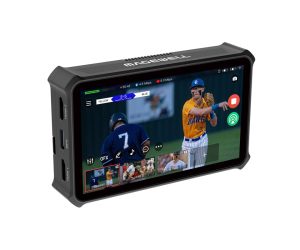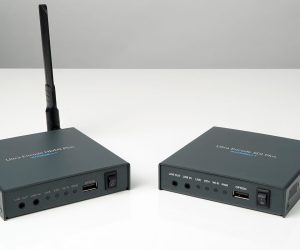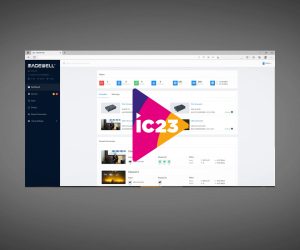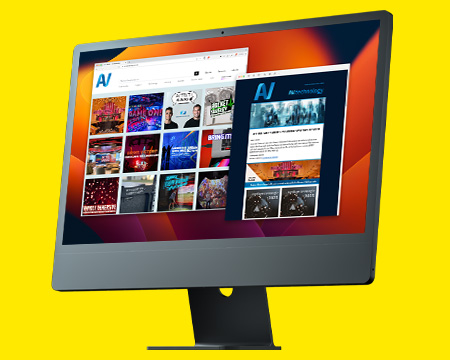
Magewell’s Ultra Encode AIO
Feature overview of streaming formats, multiple destinations & scheduling.
Magewell’s Ultra Encode AIO provides powerful live streaming features including support for multiple encoding formats and streaming protocols; simultaneous multi-protocol streaming; and scheduled streaming. Its flexibility and rich feature set make it ideal for high-quality live streaming of content including sports, educational lectures, and live events — as well as for IP-based production and AV-over-IP workflows.
Flexible Encoding Formats & Streaming Protocols
Ultra Encode AIO supports multiple video encoding formats — including H.264, H.265 (HEVC), NDI|HX 2 and the new NDI|HX 3 — and a wide array of delivery protocols including RTMP, RTMPS, SRT, RTSP, RTP, HLS, and TVU’s ISSP technology. Configurable presets enable quick and easy streaming to popular platforms including YouTube, Facebook Live, and Twitch.
Multi-Protocol Streaming
Ultra Encode AIO can stream to up to six different target destinations simultaneously, including the ability to stream concurrently in multiple protocols. Video can be encoded at bitrates up to 32Mbps, and two concurrent encoding profiles with distinct combinations of resolution, frame rate, and bitrate can be specified.
Ultra Encode AIO offers streaming output options including RTSP, RTMP, RTMPS, SRT (Caller or Listener mode), NDI|HX2, NDI|HX3, HLS, Transport Stream (TS) over UDP, TS over RTP, and TVU ISSP.
Ultra Encode AIO’s six simultaneous streaming sessions can include multiple streaming protocols or multiple instances of the same protocol — for example, three RTMP streams and three SRT streams. Note that the six sessions can include at most one HLS stream, one RTSP stream, and two NDI|HX2 streams. As an example, users could do one HLS stream plus three SRT streams, but not three HLS streams. NDI|HX3 also requires exclusivity and cannot be streamed simultaneously with other protocols, but would typically be used for production workflows or AV-over-IP rather than for live streaming to audiences.
Scheduled Streaming
Each streaming session can be scheduled to start and stop automatically at specified times, with up to eight individual or recurring events. For example, an RTMP stream could be scheduled for one particular timeframe on a specific date, and also to recur at the same time every day. Users can freely define scheduling parameters including the event description and details; start and end time; and criteria for repeating the streaming event.
Magewell: magewell.com
Australian Distributor: corsairsolutions.com.au















RESPONSES